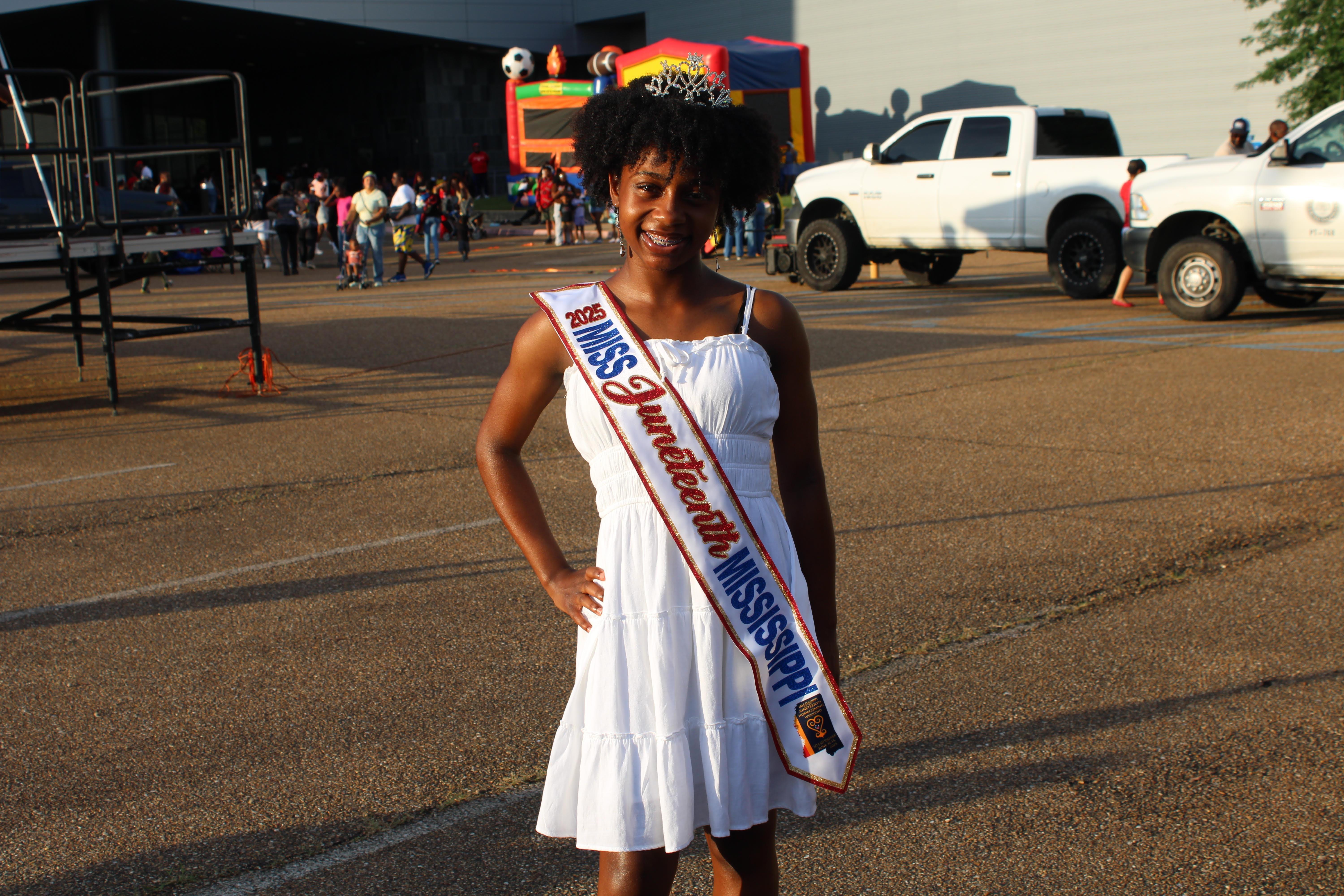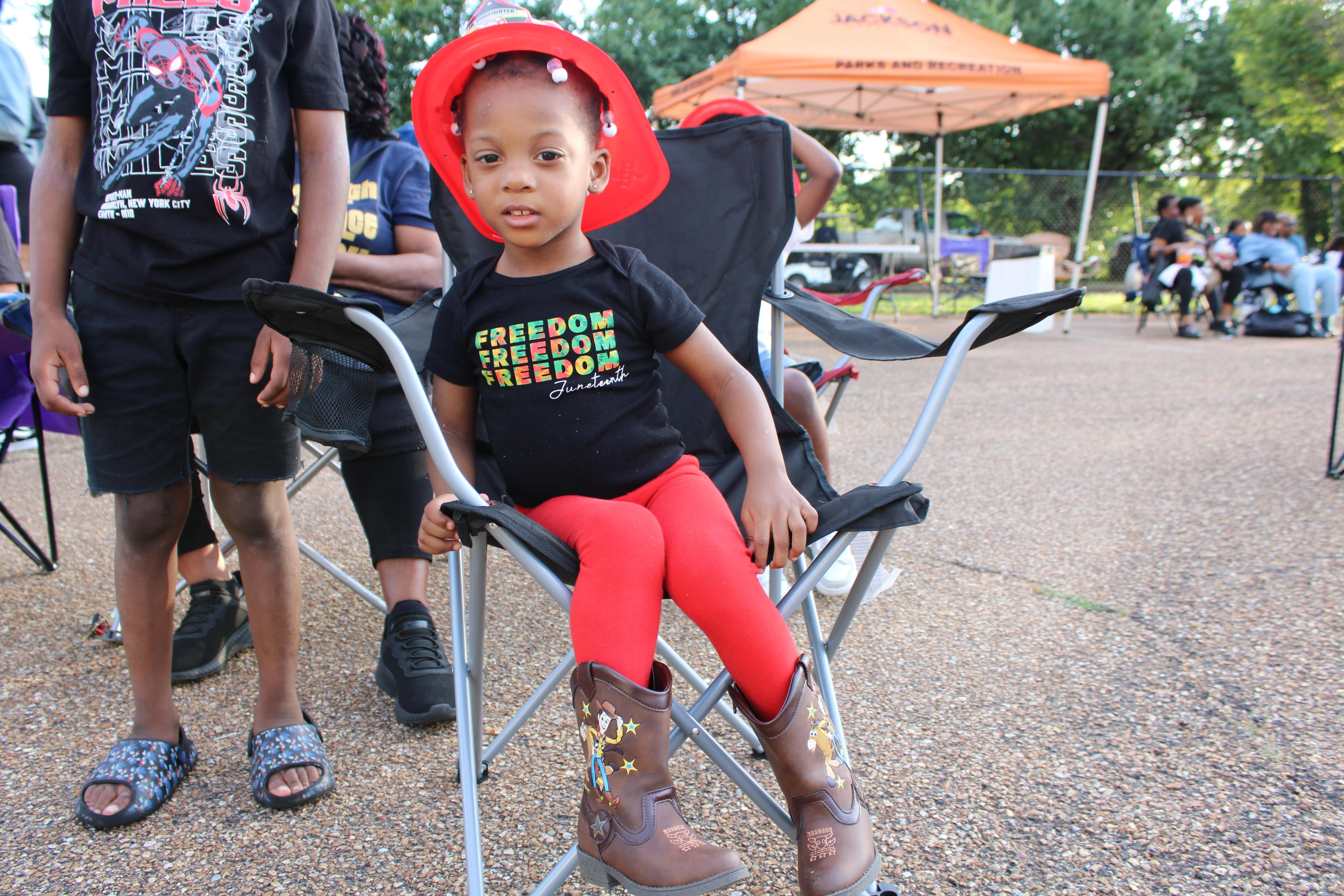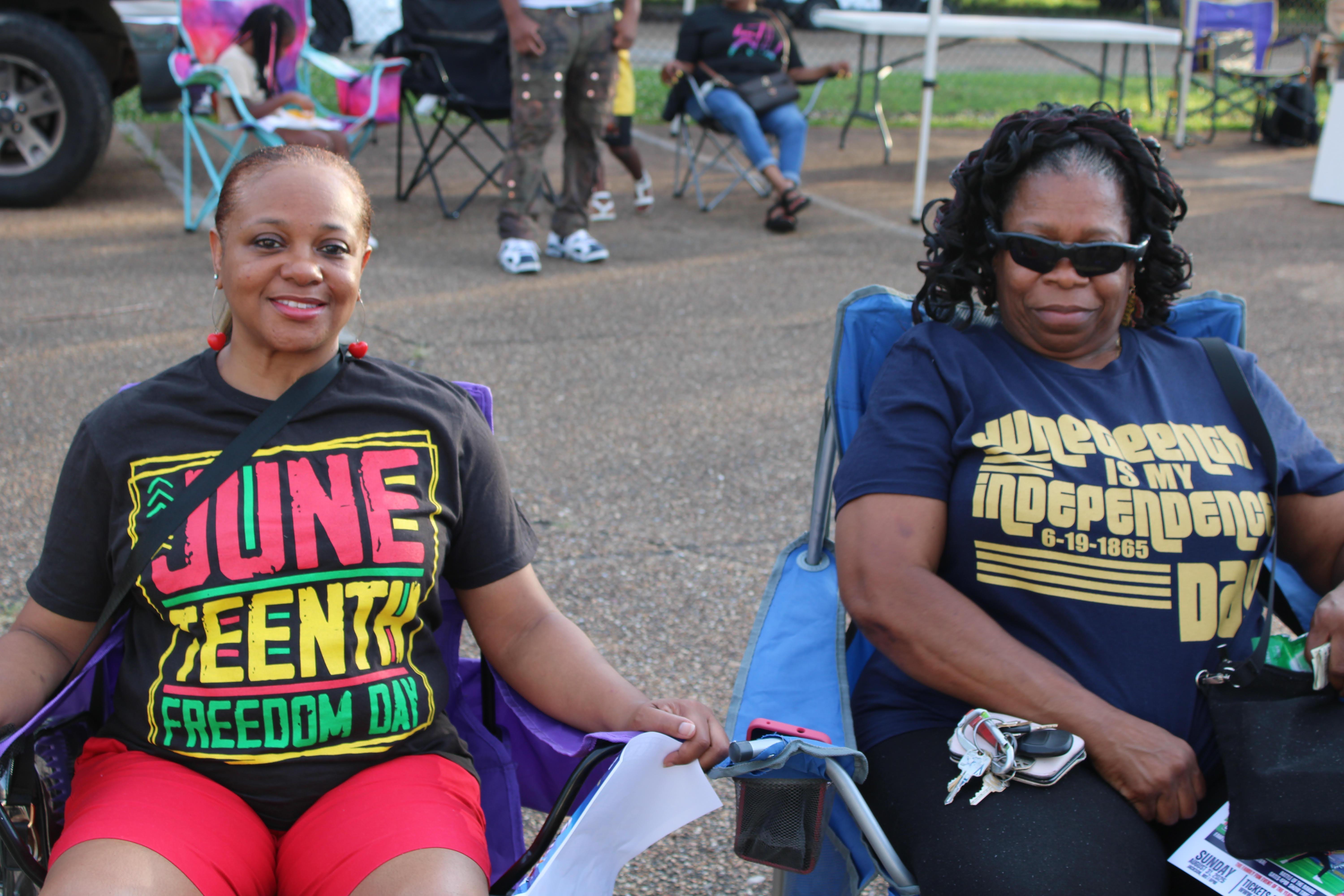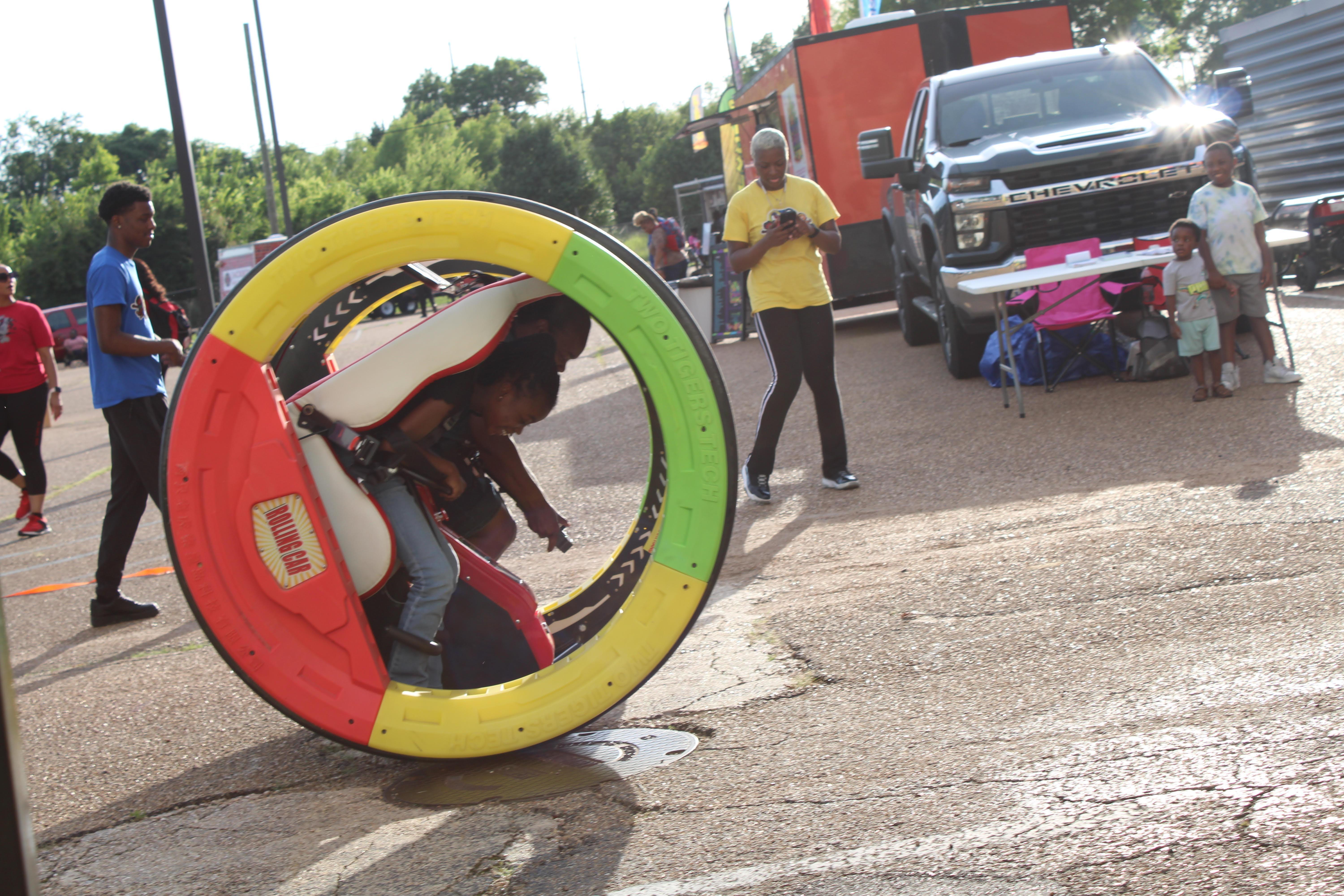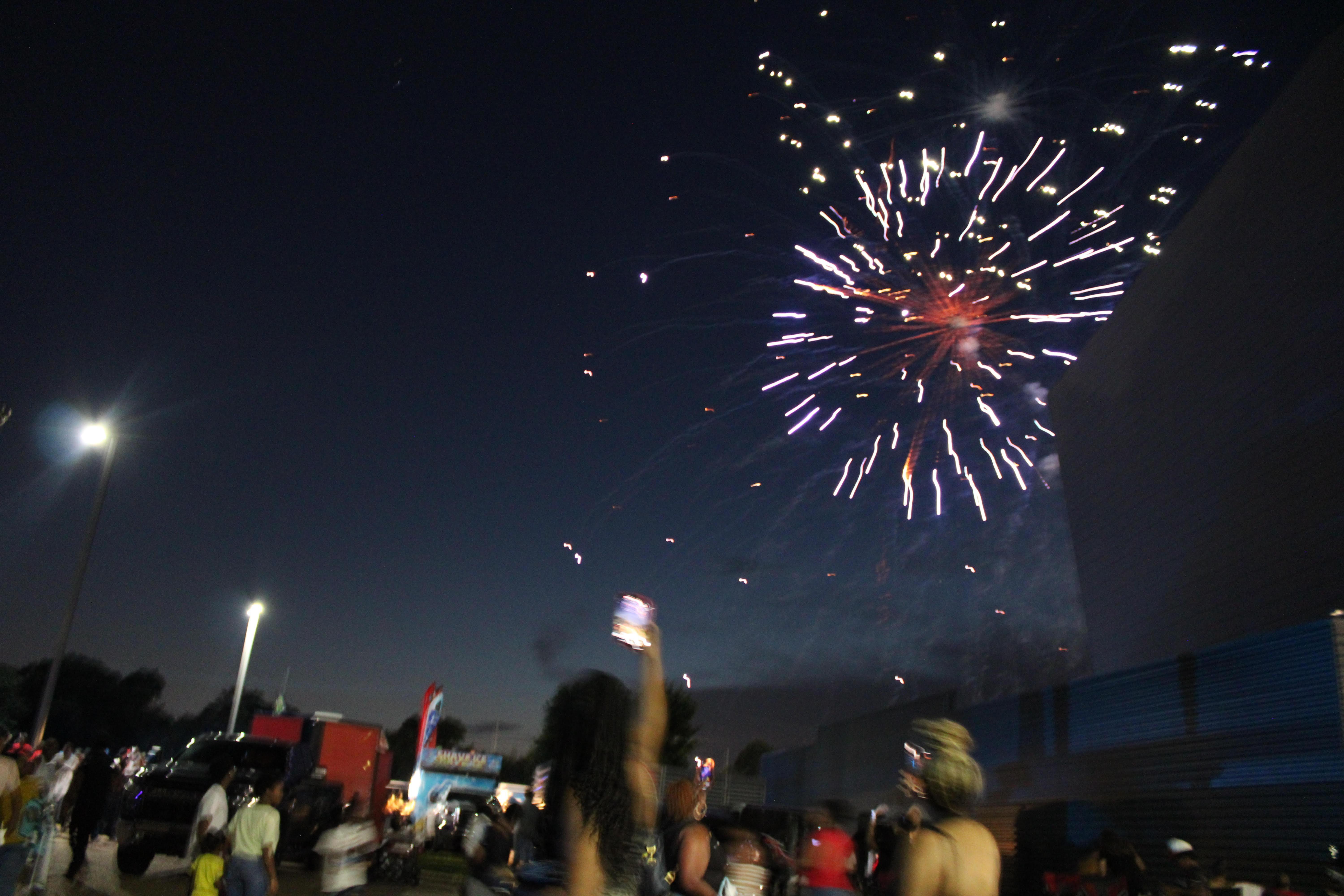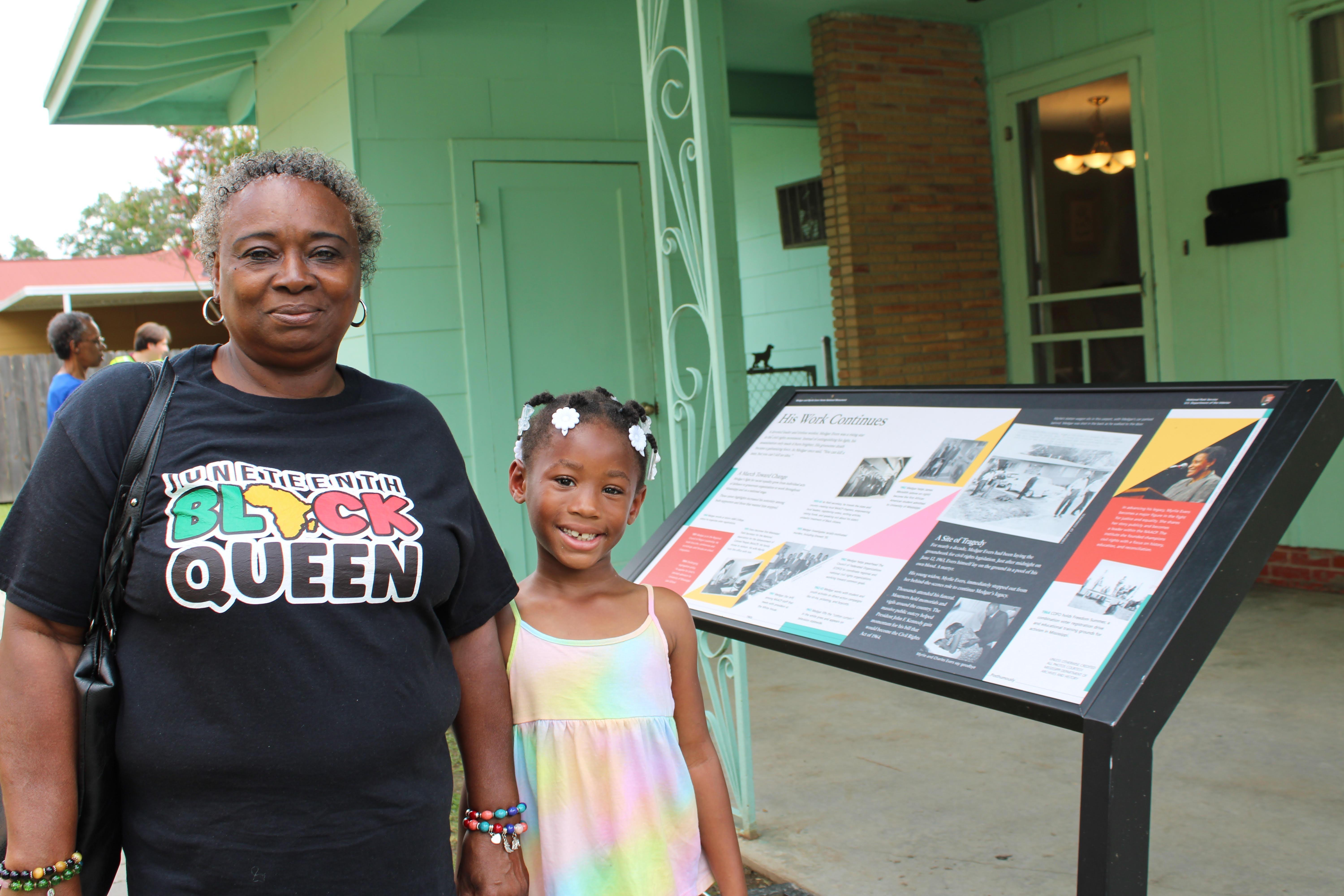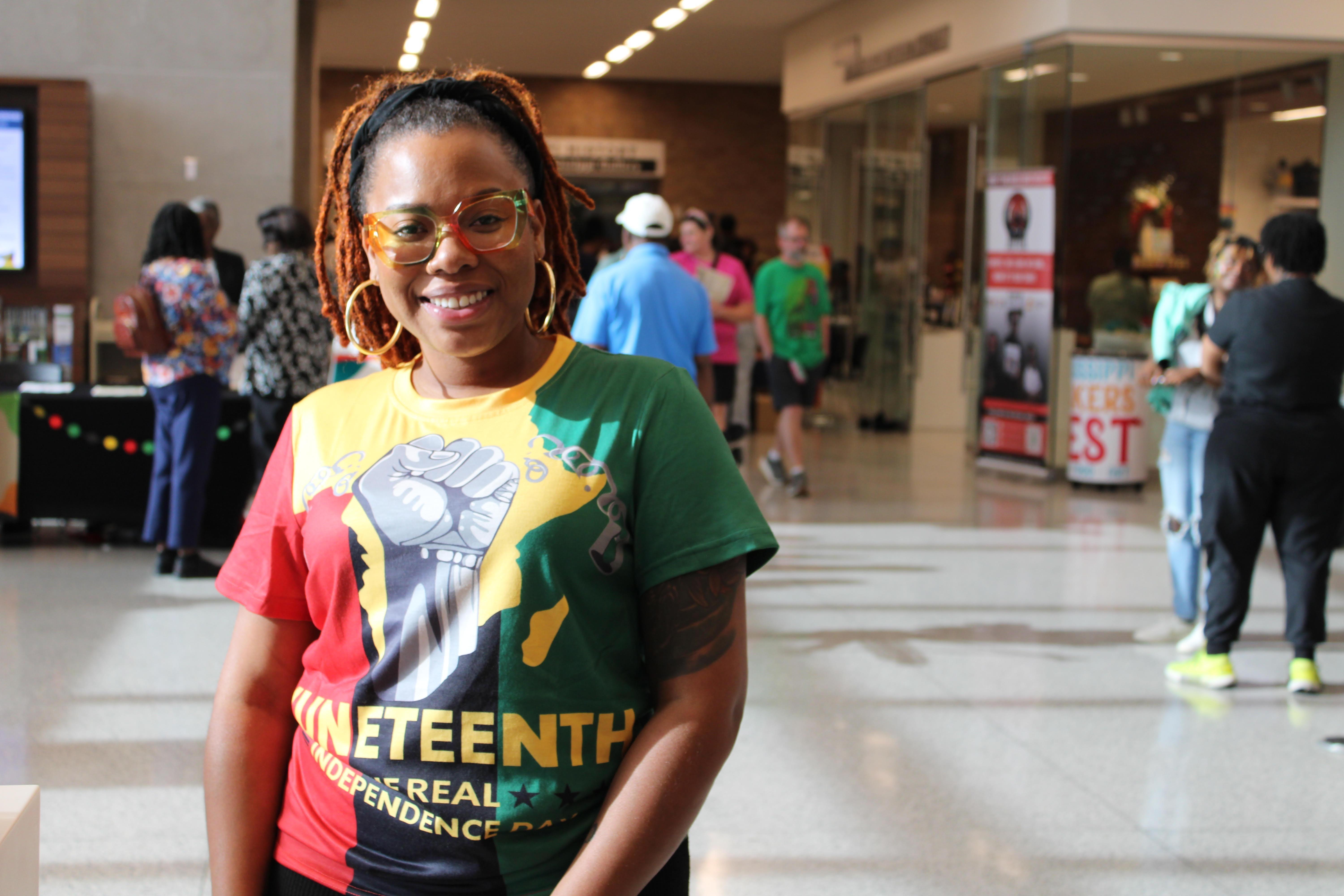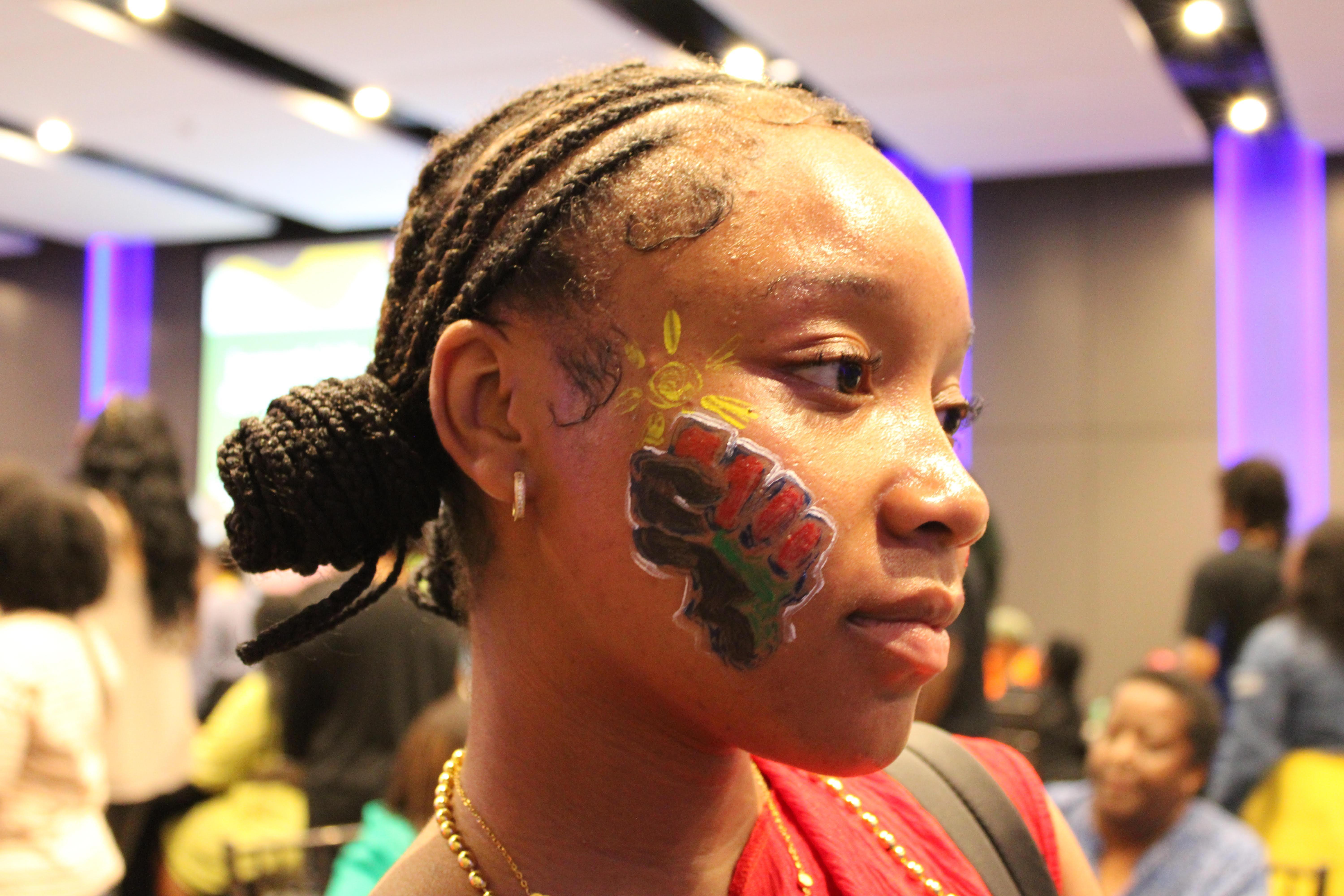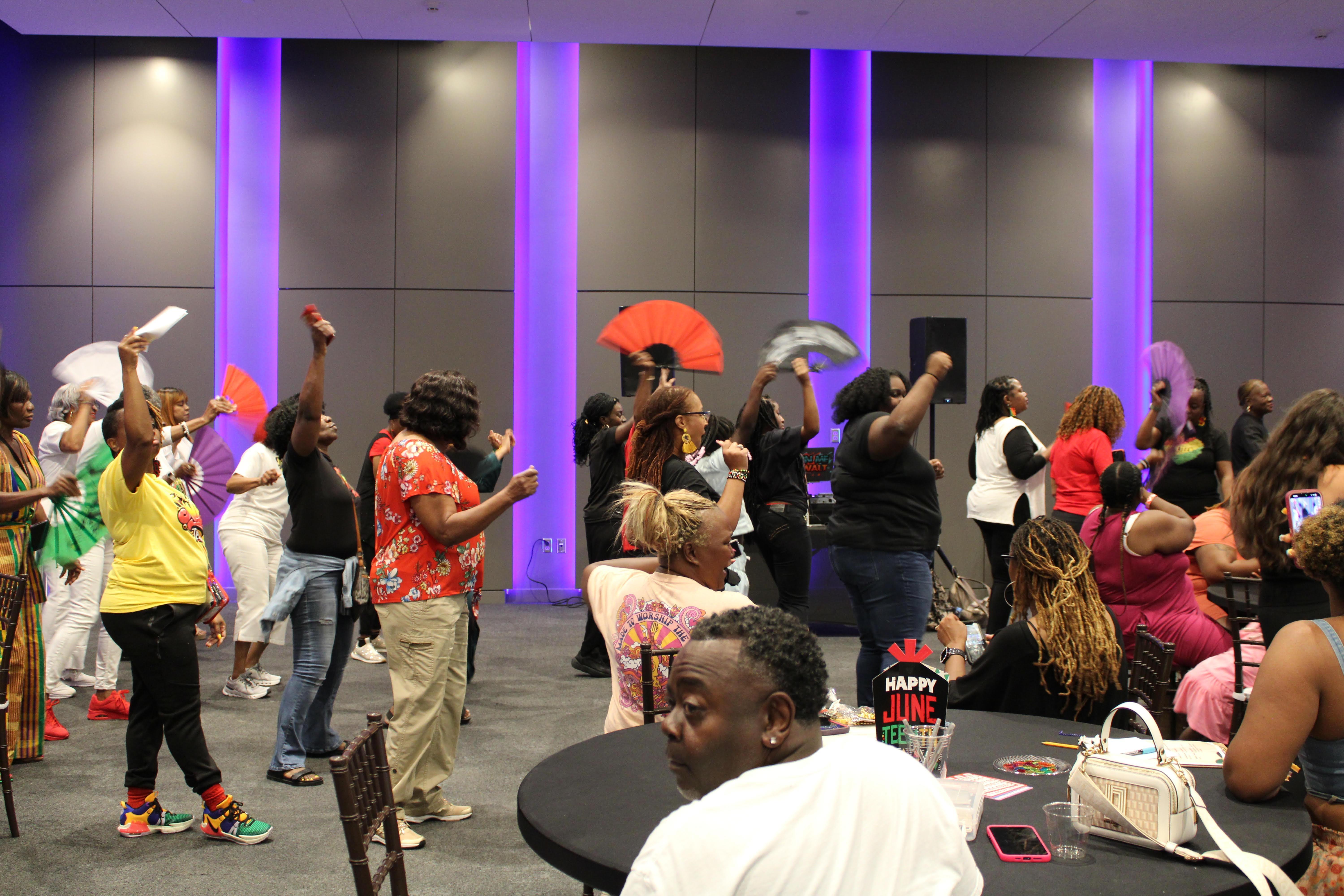Later that day at the Two Mississippi Museums in Jackson, several rows of line dancers snapped their fans in the air and children got their faces painted. The museums were open free of charge for the annual Juneteenth celebrations.
Canton resident Ni’a Jones says she grew up celebrating the holiday with her family.
“We celebrate 4th of July as if it is our true heritage,” she said. “To know what the truth is and to really understand a symbolic nature of what Juneteenth is, there is nothing like the truth.”
Yet, Michael Morris, the director of the Two Mississippi Museums, says Juneteenth also helped to solidify formerly enslaved people as Americans for the first time.
“Not only were you not a person before the end of the Civil War, according to the Supreme Court, you are not an American,” he said. “You are considered property and at the most, you are considered two thirds of a human. You are considered two thirds of what it meant to be an American, but never a full American.”
Earlier this year, the Trump administration admonished the Smithsonian Institute for exhibits that it claims shows America in a bad light. This past legislative session, Mississippi was unable to move any bills that would make Juneteenth a state holiday.
Still, George Jones of Jackson says celebrations like Juneteenth should and will continue.
“They're taking names off of tombstones, they're taking names off of ships, they are taking names off everything that some African American has contributed to in this society,” he said. “But that won't change a thing. Because you can't undo what's already been done.”
Several other Juneteenth celebrations were held in cities across Mississippi, including Hattiesburg, Starkville and Gulfport.
